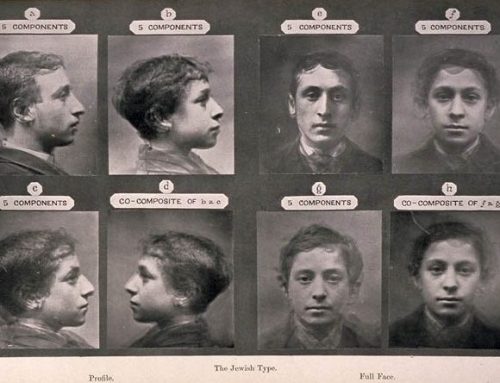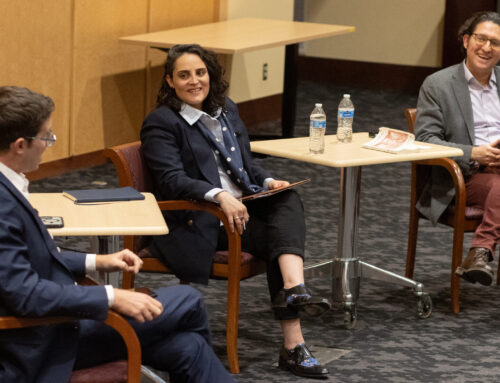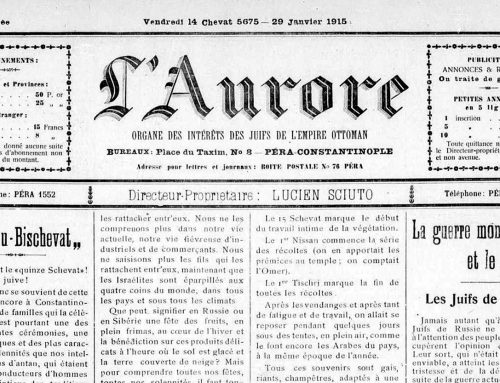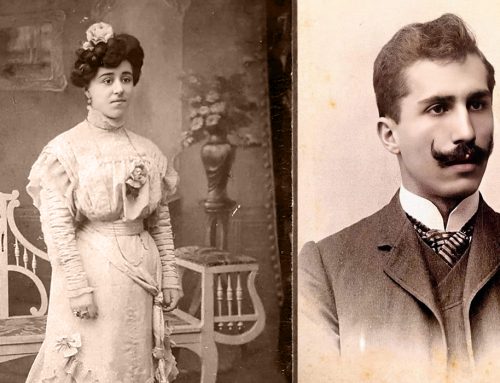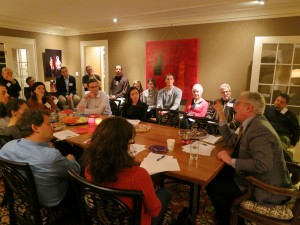
Around the table: participants at this year’s Learn-in with Stroum lecturer David Ruderman. Photo by Lauren Spokane.
What can Jews learn from an old bestseller? No, we’re not talking about the Tanakh, nor the Talmud, nor Pirkei Avot. We’re talking about an encyclopedia written in the 18th century by an Eastern European Kabbalist named Pinhas Hurwitz. An encyclopedia—kind of like Diderot’s—only lacking in a page of contents, forcing the reader to sludge committedly through its entirety. This is precisely what the Sefer ha-Brit, or the Book of the Covenant, does.
I will allow Professor David Ruderman, the 2012 Stroum Lecturer, to explicate on the arguments made during last week’s public lectures in his forthcoming book on the Sefer ha-Brit, which will be published by the University of Washington Press. However, I was privy to a gathering Thursday night of a group of leaders of the Seattle Jewish community in the Mt. Baker neighborhood to discuss what we, as a community, could learn from this Enlightenment-era book. Professor Ruderman, who currently directs the Katz Center for Advanced Judaic Studies at the University of Pennsylvania, guided us through what he sees as the text’s most valuable gems. We have instructions on how to imbibe in the Holy Spirit (whoa, sounding a little Catholic), but most importantly, we have an elaboration on a line from Leviticus 19:18: love thy neighbor as you love yourself.
Professor Ruderman segued into two main points from this lesson from Leviticus. The first takeaway is a conventional interpretation, which means “love all Jews.” This point is elaborated on in the Talmud during the Rabbinic Period. Sometimes we hear it as Ahavat Yisrael, or love all Israel. One famous story involves a man who has fallen into a well on Shabbat. Helping him would violate Shabbat. But what is the man to do? The Rabbis instruct: find out if he is a Jew first. If he is, help him. If he is not, wait until Shabbat is over. Ruderman noted this teaching as a way to illustrate the precedent for this understanding of Leviticus—at least, until Hurwitz’ critical intervention into Jewish ethics.
Hurwitz understands love thy neighbor as love all your neighbors, including non-Jews. To really grasp his radical perspective, we must remember the historical context in which Hurwitz published his work. This is the Enlightenment, where ideas from Western Europe (the Paris-Berlin Praxis) mingled with Jewish ideas, informing the works of Moses Mendelssohn among many others. As scholars have written, this period marks the beginning of a new Jewish historical awareness. However, this is also the beginning of Hasidic Judaism and the Musar movement—religious movements that advocated a strict adherence to Halakhah as a response to secularizing trends in Western Europe. Hurwitz is unique because he is not a member of the elite German-Jewishintelligentsia. And, when Judaism and Jewish ethics are worried about the socio-political issues of the time (anti-Semitism, intermarriage, assimilation, and emancipation), the idea to love non-Jews is quite revolutionary.
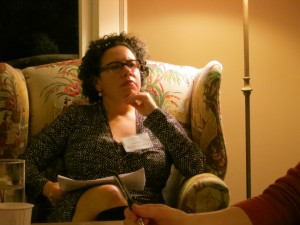
Jamie Merriman-Cohen, member of the Jewish Studies Advisory Board and the JewDub Editorial Council, considers the “love thy neighbor” question. Photo by Lauren Spokane.
Yet something in Hurwitz’ odd amalgam of themes–kabbalah + science + ethics, oh my!–struck a chord with Jewish audiences from the 18th century onwards. Ruderman pointed out that Sefer ha-Brit emerged in both Yiddish and Ladino translations. In fact, one Ladino translation focused solely on the “Love thy neighbor” chapter, obviously seeing the message of universal tolerance as something that the Sephardic Jewish community would embrace. Even today, Jewish scholars and members of the religious community are debating this work in internet chatrooms.
The Sefer ha-Brit aside, what was most interesting to watch was the Seattle Jewish community engaging directly with these ideas. Thursday night’s Learn-in included many Hebraists and Talmudists who offered context for the line from Leviticus 19:18, while other participants offered contemporary ethical perspectives on Jewish particularism. In fact, the diversity in affiliation and levels of observance evident in the room illustrates the main lesson of the Sefer ha-Brit.
Judaism, as an ethno-national identity and as a religious and cultural practice, is extremely diverse. Ruderman joked that going to a college Hillel is really about learning to love other Jews. It is often difficult to determine what a black hat living in the Old City of Jerusalem really has in common with a JewBu in West Hollywood (or anyone in between). But until we figure that out, I guess we should just learn to Love Thy Neighbor–or at least keep questioning what it means to be in the neighborhood.



